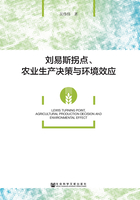
Abstract
Market-oriented economic reforms in China have released huge policy dividends for economic growth. Under the macro background of reform,opening up,and supply-side reforms,agriculture has achieved considerable development. Agriculture is the foundation of the national economy,and modernization of agriculture is the foundation for ensuring the supply of agricultural products and food security. Under the new economic development environment,the growth path of China’s agricultural economy deserves further discussion. After the reform and opening up,the transfer of rural labor forces has affected China’s economic growth from a multidimensional perspective. In the initial stage of transfer,cheap rural laborers have made important contributions to the accumulation and rapid growth of urban non-agricultural industries. However,a series of empirical facts such as the “shortage of rural workers” and the rising wages of migrant workers that began to emerge at the beginning of this century have begun to reflect on whether there is absolute surplus labor in the sense of Lewis in rural China and whether the transfer of labor force will have Impact on agricultural production excepting for increasing the income of peasants. That the surplus rural labor force in China has surpassed the “Lewis Turning Point” is accepted by the academic community as a basic judgment and is also the basic premise of all analyses in this book. Under this background,the book discusses the impact of rural labor transfer on agricultural production decisions and agricultural product supply. It further explored the environmental effects caused by changes in the input structure of agricultural production factors. The research results of this book show that while the rural labor force transfer reduces the absolute number of rural laborers,it also makes women,older workers,and workers with relatively low education levels gradually become the main agricultural labor force,reducing agricultural production efficiency and agricultural product output. Based on the “quasi-land-holding peasant” assumption of the land system and the classical model of labor supply,the increase in agricultural income will reduce the elasticity of agricultural labor supply for agricultural laborers. When the income effect from the increase in agricultural income is greater than the substitution effect,the laborer reduces the time spent on farming. In addition,a series of favorable agricultural policies implemented by China in recent years will strengthen the income effect of individual workers due to rising farm income,and further reduce the total agricultural labor input in rural areas. Even if the input of other agricultural production factors increases,the growth in the supply of agricultural products cannot be met. The increase in demand will inevitably lead to the increase in the prices of agricultural products. The theoretical analysis results are consistent with the reality of the continuous rise of agricultural products in recent years. Inspired by the increase in agricultural product prices,the transfer of rural labor forces will help change the traditional agricultural production model that focuses on labor input,increase investment in agricultural capital,increase agricultural production efficiency and agricultural output,but it will also cause greater impact on the agricultural production environment. With the pressure,agricultural development support policies will intensify this effect to a certain extent and increase agricultural carbon emissions. Therefore,under the situation that the rural labor force is increasingly scarce,the government needs to guide the transformation of the agricultural production mode through relevant support policies,and also needs to pay attention to the rational use of agricultural production factors,and increase the quality of agricultural growth while establishing modern agricultural production methods.